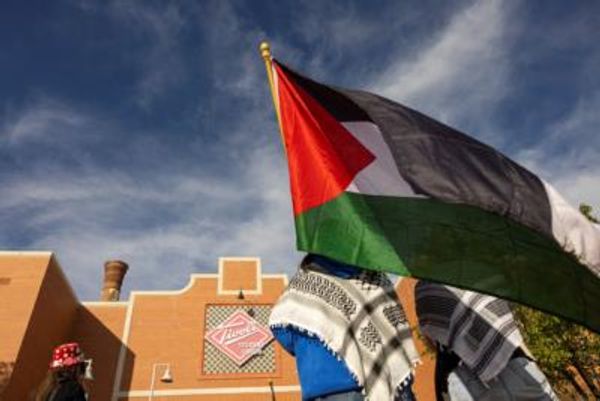
Wherever trees have been left standing in Gaza, they are being chopped down for fuel. When wood – furniture and doors included – cannot be found, Gaza’s residents burn waste.
To cook or heat themselves, people in the Palestinian enclave are burning what they can find in crude stoves they have made of clay, scrap metal or loose bricks to replace kitchen cookers or gas stoves. Israel’s siege means it is no longer possible for people to find gas.
But finding fuel is a difficult task – it can take hours to find a tree to cut and transport home – and comes with health concerns about the smoke released, especially as so many are living in overcrowded conditions.
According to the World Food Progamme, 70% of displaced people in southern Gaza rely on firewood for fuel, but the number of those with no fuel at all has doubled over the past two weeks to 15%.
Nazmi Mwafi, a 23-year-old who uses social media app Snapchat to send out daily updates from Gaza, said finding wood for fuel in the colder weather is one of the biggest preoccupations people now have, and has been made more difficult by the dwindling number of trees.
“We cut any tree [we find], there’s no specific type. We use it to cook, to eat, we heat water with it to wash and to drink. So it’s a big task to go and get the wood,” said Mwafi.
“We go to the woods but it’s a very far distance to travel. It takes you hours, because you have to cut the trees, then you have to drag them a long way through sandy land until you reach a main road.”

Mwafi lives in Rafah, in southern Gaza, where tens of thousands of newly displaced people have been arriving in the past two weeks since Israel ordered them to leave other parts of southern Gaza it had previously told them to evacuate to. The UN said Rafah is suffering from extreme overcrowding, with nowhere for many to sleep and a lack of toilets that forces people to use open spaces, which it warns is raising the risk of diseases spreading.
There has also been a significant rise in the number of cases of respiratory illness, with the World Health Organization reporting 129,000 cases of acute respiratory infections as of last week.
The WFP said about 13% of people are burning solid waste because they cannot find firewood and warned the use of “dirty fuel” makes the likelihood of respiratory infections much worse.
Ali Daly, who was displaced to Rafah from Gaza City, said people either buy wood or cut it from trees they find in the street and other public spaces, but they can tell that burning wood is having an impact on their health. “We are living with sickness – from the smoke of cooking, the smoke of the airstrikes, from the cold,” he said.
A lack of fuel and clean water, as well as food shortages, have combined to increase hunger levels in Gaza. The WFP said that over 12 days, the number of households experiencing severe hunger had increased from 38% to 56%.
Shahd al-Modallal, who also lives in Rafah, said people are using whatever they can find as fuel, whether it is scraps of paper or even their precious olive trees. “October is the season of olives and olive oil. Instead of [harvesting] olives, we are cutting any tree we can find to survive,” she said. “We’ll build a fire and announce to everyone in the family that we have a fire and so anyone who has food they want to cook should bring it. That’s our daily routine.”
Modallal said those with their own trees have already cut them down and it has become difficult to find wood. “Most people wake up in the morning and try find anything they can burn. The funny thing is the Israelis throw letters from the sky telling people to evacuate. People are trying to find all those letters – we burn it, we make bread with it and we have a happy meal.”







